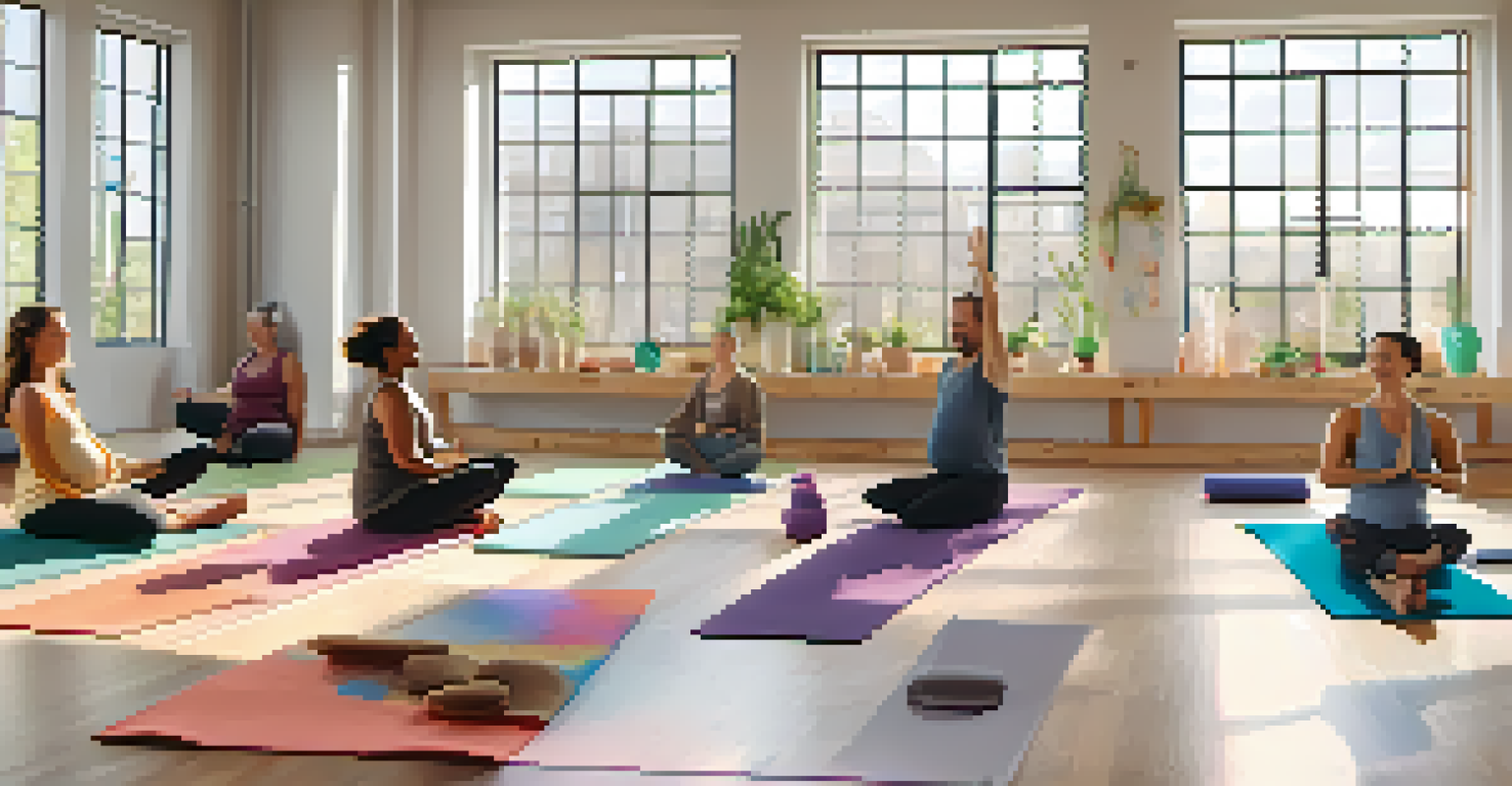Yoga for Expectant Fathers: Supporting Partners During Pregnancy

The Importance of Support During Pregnancy for Fathers
Pregnancy is a life-changing experience for both partners, but often, the focus is primarily on the mother. Expectant fathers play a crucial role in providing emotional, physical, and mental support during this significant time. By actively participating in the journey, fathers can strengthen their bond with their partners and prepare for the arrival of their child.
The greatest gift you can give your children is your time.
Support can take many forms, from attending doctor appointments to simply being there to listen. When fathers engage in their partners’ experiences, it not only alleviates anxiety but also fosters a sense of teamwork. This shared journey sets a solid foundation for parenting, as both partners learn to communicate and navigate challenges together.
Yoga can be a wonderful tool for expectant fathers to enhance their support role. Practicing yoga together creates a space for connection and understanding, allowing fathers to physically and emotionally support their partners through the ups and downs of pregnancy.
How Yoga Benefits Expectant Fathers and Their Partners
Engaging in yoga during pregnancy can benefit both fathers and their partners in numerous ways. For fathers, yoga helps to cultivate mindfulness, reduce stress, and improve flexibility—qualities that are invaluable when navigating the challenges of parenthood. Additionally, it allows them to be more attuned to their partner’s needs, enhancing their ability to provide emotional support.

For expectant mothers, yoga offers physical relief from common pregnancy discomforts, such as back pain or swelling. When fathers join in these sessions, they not only show their commitment but also learn techniques that can help them assist their partners with comfort measures during labor. This shared experience creates a stronger emotional bond between the couple.
Fathers' Role in Pregnancy Support
Expectant fathers play a vital role by providing emotional and physical support during pregnancy, which strengthens their partnership and prepares them for parenting.
Moreover, practicing yoga together fosters a sense of unity and promotes open communication. As both partners move through poses, they can share their thoughts and feelings, deepening their connection and understanding of each other's experiences during this transformative time.
Simple Yoga Poses for Expectant Fathers to Try
Yoga doesn’t have to be complicated, and there are several simple poses that expectant fathers can practice, either alone or with their partners. Poses like Child’s Pose, Cat-Cow, and Gentle Forward Bends are excellent for relieving tension and promoting relaxation. These poses can also help fathers connect with their bodies and prepare for the physical demands of parenting.
Yoga is the journey of the self, through the self, to the self.
In addition to these poses, incorporating breathing exercises can be incredibly beneficial. Deep, mindful breathing not only calms the mind but also serves as a powerful tool for fathers to support their partners during labor. Practicing these techniques together can create a shared sense of calm and readiness for the birthing experience.
Finally, fathers should remember that yoga is not about perfection; it’s about being present. The goal is to establish a routine that feels comfortable and enjoyable, allowing both partners to unwind and connect with each other and their growing baby.
Creating a Supportive Yoga Practice at Home
Establishing a yoga routine at home can be both fun and beneficial for expectant fathers and their partners. Start by setting aside a specific time each week dedicated to practicing together—this can be as little as 20 minutes. The key is consistency, as it helps reinforce the importance of support and connection during pregnancy.
To create a comforting environment, gather yoga mats, soft lighting, and calming music. This setting allows for relaxation and focus, making it easier for both partners to engage in their practice. Fathers should encourage their partners to express their needs during practice, whether that means adjusting poses or taking breaks.
Benefits of Yoga for Couples
Engaging in yoga together helps expectant fathers and mothers relieve stress, enhance communication, and build a deeper emotional bond.
Incorporating guided yoga sessions via apps or online videos can also enhance the experience. Many resources cater specifically to pregnant couples, offering tailored instructions and modifications for comfort and safety.
The Role of Mindfulness in Yoga for Expectant Fathers
Mindfulness is a core element of yoga, and it plays a vital role in supporting expectant fathers during pregnancy. By practicing mindfulness, fathers learn to be present in the moment, which can help them better understand their partner’s emotional state. This awareness allows them to respond thoughtfully and compassionately to their partner's needs.
Moreover, mindfulness can help fathers manage their own anxieties about becoming a parent. It's normal to feel overwhelmed by the responsibilities ahead, but yoga encourages fathers to acknowledge and let go of these worries. Through mindfulness, they can cultivate a sense of calm and readiness for the changes ahead.
Incorporating mindfulness into daily life—whether through meditation, deep breathing, or yoga—creates a supportive atmosphere for both partners. This practice encourages open dialogue about fears and expectations, fostering a deeper connection as they prepare for their new role as parents.
Building a Community of Support Through Yoga
Joining a yoga class specifically designed for expectant parents can help fathers build a supportive community. These classes create a space where fathers can connect with others in similar situations, sharing experiences, tips, and encouragement. This sense of camaraderie can be incredibly reassuring during a time when many men may feel isolated.
Additionally, participating in group activities can enhance motivation and commitment to a yoga practice. Seeing other fathers engage with their partners can inspire and reinforce the importance of support during pregnancy. These shared experiences can create lasting friendships that extend beyond the class.
Creating a Supportive Home Practice
Establishing a consistent yoga routine at home fosters connection and mindfulness, benefiting both parents as they prepare for their new roles.
Involving friends or family members who are also expectant fathers can further expand this community. Sharing insights, challenges, and successes can help create a well-rounded support network that benefits everyone involved.
Embracing the Journey: Yoga as a Tool for Expectant Fathers
Ultimately, yoga serves as a powerful tool for expectant fathers to embrace the journey of pregnancy. It encourages them to be active participants in their partner’s experience while also focusing on their own physical and emotional well-being. This balance is essential for building a healthy partnership that can withstand the challenges of parenthood.
By incorporating yoga into their routine, fathers can learn valuable skills that extend beyond the mat. These lessons in mindfulness, patience, and empathy can shape their approach to parenting and support their partners effectively. As they navigate the joys and challenges of parenthood, these skills will prove invaluable.

As the due date approaches, fathers who prioritize their own well-being and support their partners through yoga will likely find themselves better prepared for the adventure ahead. Embracing this journey together will not only strengthen their relationship but also create a nurturing environment for their growing family.